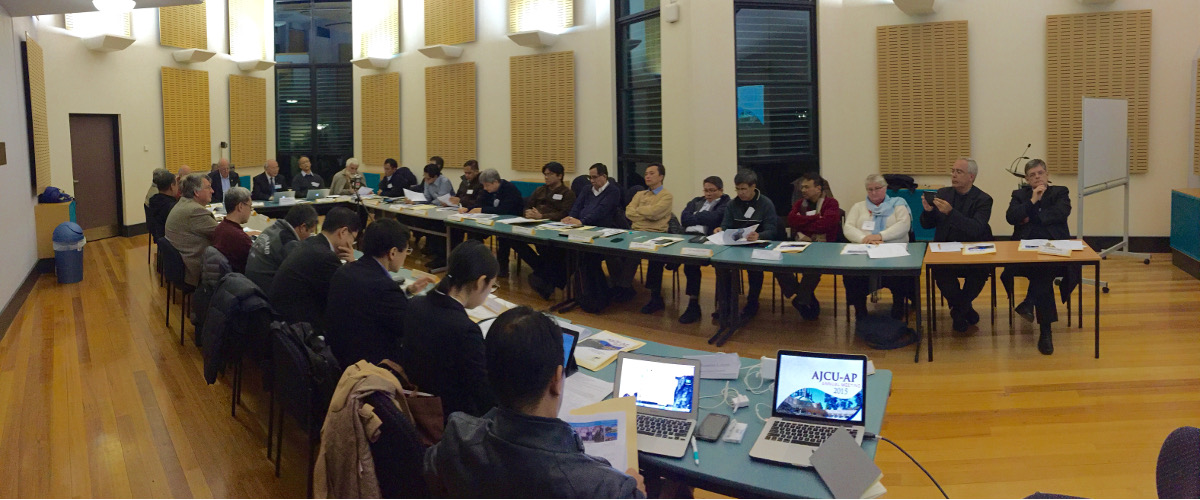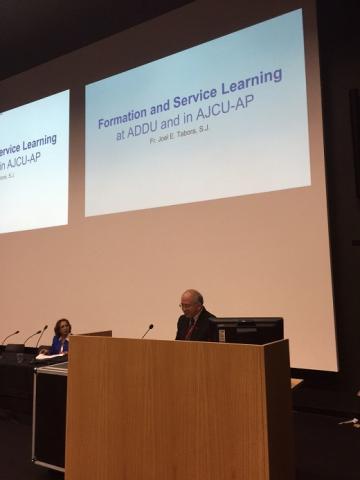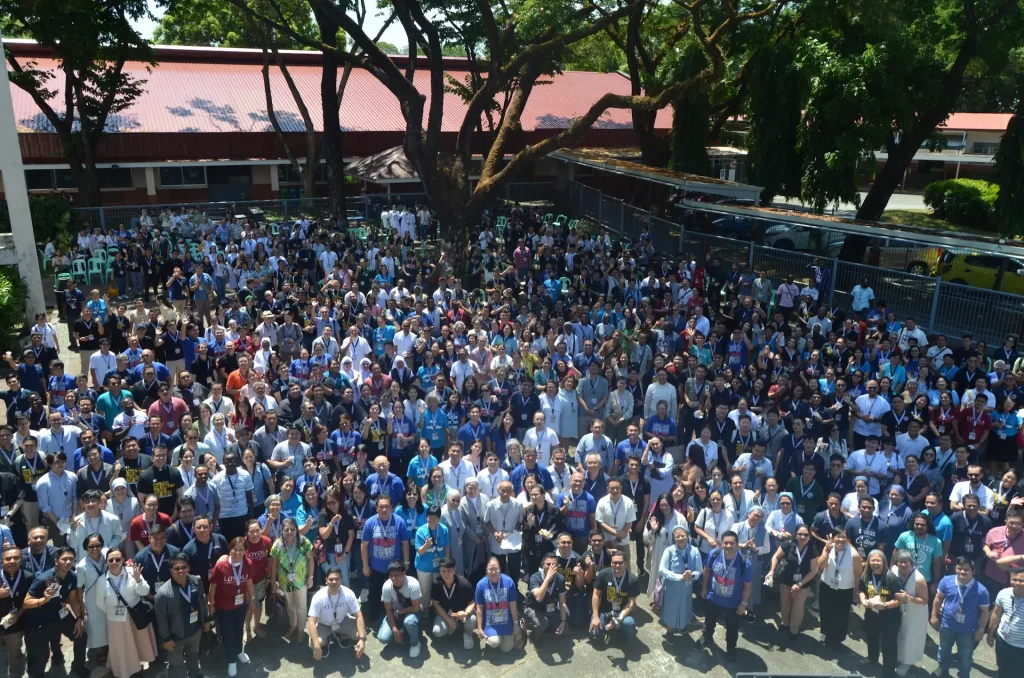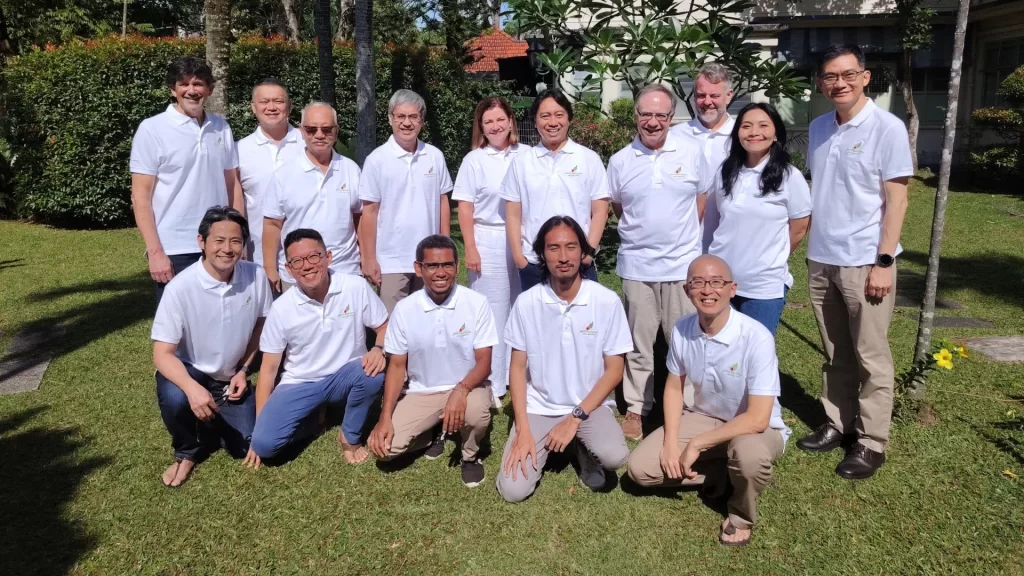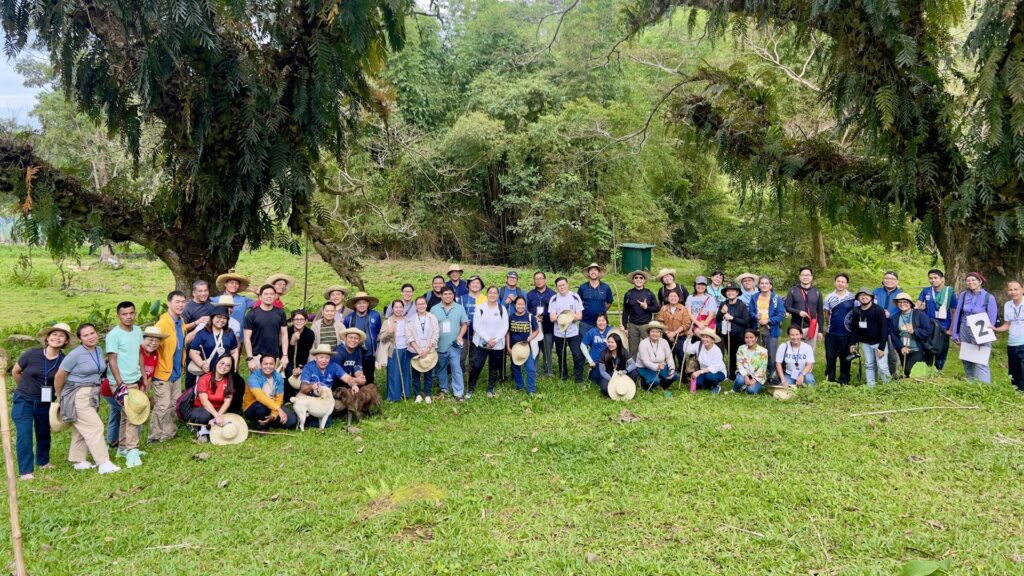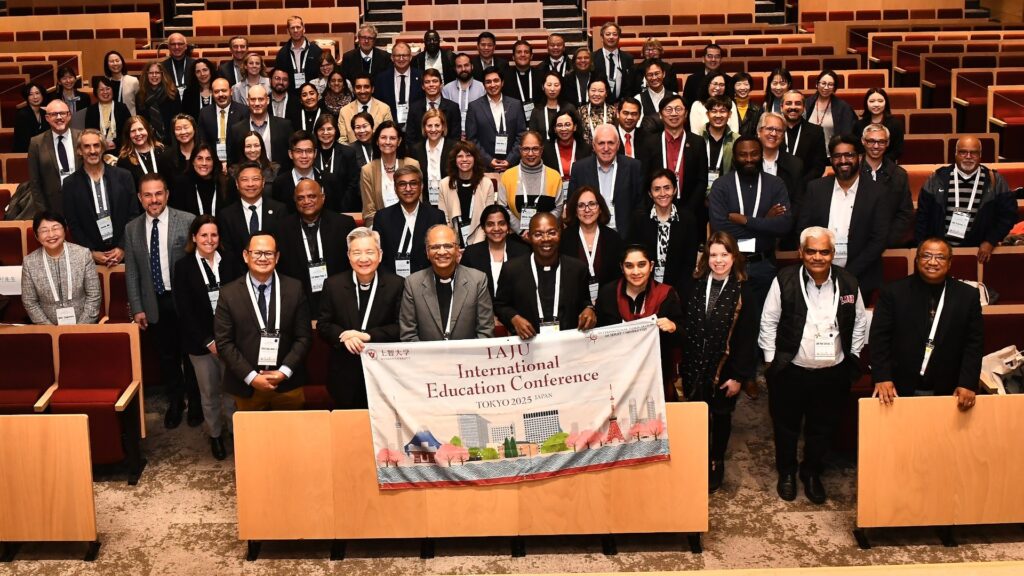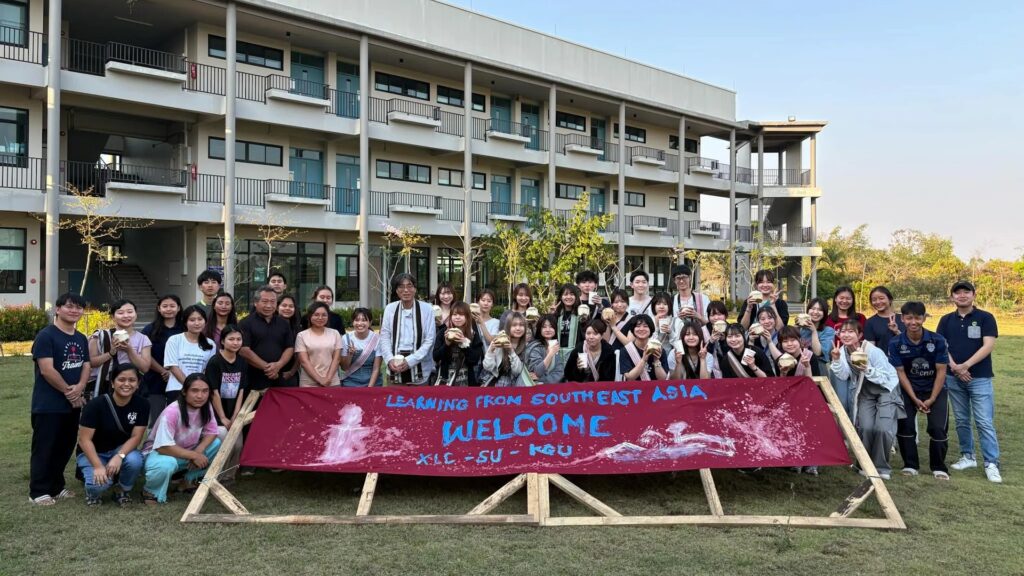Earlier in July, Jesuits and their representatives from around the world met in Melbourne, Australia to develop ways to expand collaboration among Jesuits in higher education. Fr Joel Tabora SJ, a speaker during the conference and current chair of the Association of Jesuit Colleges and Universities (AJCU-AP), shares here some of his insights following the international event.
The Jesuit university is first a university. It is a community – “universitas” – committed to the truth – its discovery, discussion, and articulation not only within the walls of the university, but beyond it. If it is the truth, for instance, that the earth is endangered through our compulsive consumerist lifestyle, the Jesuit university articulates this, no matter how disturbing for obese individuals, pollutive corporations or governments bereft of enlightened environmental structures and policies like ours. We continue to have a DENR, for instance, that is not only the protector, but the exploiter of our natural resources; it “protects” our minerals by pillaging them.
The Jesuit university is Jesuit in a twofold manner: first, in its appropriation of the Jesuit mission: the service of the faith, the promotion of justice, sensitivity to culture, inter-religious dialogue and the protection and defence of the environment; second, in its appropriation of Ignatian spirituality. The Jesuit mission and Ignatian spirituality are appropriated in academic freedom by the university through its vision-mission statements, its operational soul.
Jesuit universities from all over the world were meeting in the 2015 Melbourne Conference on Jesuit Higher Education from July 10 to 12 despite near-freezing temperatures asking themselves how they can better network in today’s globalized world. Fr Patxi Alvarez SJ, secretary to the Fr General on Social Justice and the Ecology, gave a brief talk cum video on “Social Justice and the Jesuit University.” But the conference emphasis was not on speeches but on practise, with strong contributions from the Latin American region on best practises in promoting social justice through the Jesuit university. My talk focussed not merely on the formation of the student but of the whole university community for social justice.
The strength of this meeting was that it went beyond words, words, words, and presented practical platforms for collaboration in advancing Jesuit education today. The emphasis was not on how Jesuit education might become more elite, but on how its benefits might be better shared, not only among traditional stakeholders like the students of the Gregorian in Rome, Comillas in Madrid, the Iberoamericana University in Puebla, the University of San Francisco, Sanata Dharma University in Yogyakarta, and Ateneo de Zamboanga University but among populations roundly excluded from higher education-like refugees and the poor.
Examples: the Jesuit Commons: Higher Education at the Margins platform seeks to scale up education of refugees in Asia Pacific and Africa through greater collaboration among Jesuit universities. The Jesuit Ecology Project seeks to network Jesuit universities throughout the world in intermeshing environmental science, ethics, spirituality and action through a shared cost-free electronic textbook, Healing Earth. Particularly in the light of Pope Francis’ Laudato si’ this project for all – even beyond the Jesuit network – highlights the connection between the environment and the poor. Through the International Association of Business Schools and the Miller Center for Social Entrepreneurship in Santa Clara University, USA, networking is encouraged on social entrepreneurship. In business education, networking is invited through a Global Jesuit Case series. Sundry projects can be shared and partners in networking forged through the Jesuit Digital Network platform.
Jesuit higher educational institutions in Asia Pacific, our region, are organised through the Association of Jesuit Colleges and Universities Asia Pacific (AJCU-AP). It includes Sophia University in Tokyo, the Elisabeth University of Music in Hiroshima, Sogang University in Seoul, The Beijing Center, the Fu Jen Faculty of Theology in Taiwan, Sanata Dharma University in Yogyakarta, ATMI-Polytechnic in Surakarta, Newman College and Sentire in Australia, Loyola College of Culion (Philippines) and the five Ateneos of the Philippines. The diversity of languages, cultures, religions, administrative structures and regulative environments militates against easy collaboration in our region. But during its annual meeting in Newman College, right after the Melbourne Conference, it was easy to confirm collaboration through adopting the Jesuit Digital Network, the Jesuit Case Studies, and especially the Healing Earth platforms. As ASEAN +3 (Japan, Korea and China) “integrates” the region, it also has its own margins, Myanmar and Timor-Leste, where teacher development is needed urgently. Xavier University, for instance, is contributing to this in Yangon; Ateneo de Davao in Taunggyi, Myanmar; and Ateneo de Zamboanga and Ateneo de Naga are ready to work in Timor-Leste.
Collaboration among Jesuit universities is based on a shared understanding of the common good unto which they collaborate. This, of course, must be a topic of ongoing conversation, if not debate, as historical conditions of the common good are in constant flux; certainly, it must be greater than the mere preservation of the niches they may enjoy in a free market. Based on their mission, the stakeholders in Jesuit education are students, faculty and staff. They are also our shared human society and our shared “common home,” including the quality of our human life and the manner we use or abuse this home. In reflection on the meaningfulness or absurdity of our shared life, our universities necessarily connect to diverse religions, cultures, interest groups, politics, issues of war and peace, issues of rationality and irrationality. They cannot escape them when “truth” is at stake.
Of course, it might be proposed that searching for and understanding this shared common good is the compelling stuff of all higher educational institutions, private and public, and not just Jesuit universities, and the ultimate underlying rationale for academic freedom. In academic freedom, constrained by no politicians, no ideologies, no religions, no pre-determined doctrines, no domineering global or national economy, universities pursue truth together in the common good. Addictive consumption, the dehumanized gadget communications, superficial friending, and servility to the overbearing technocracy, may be as bad for the earth as burning fossil fuels and mining with mercury. To address this, networking among universities all over the earth may be crucial. [The Manila Times]
Download Fr Tabora’s speech, “Formation and Service Learning at ADDU and in AJCU-AP”, delivered at the 2015 Melbourne Conference on Jesuit Higher Education, here.
Related story: Jesuit educators collaborate for social justice

